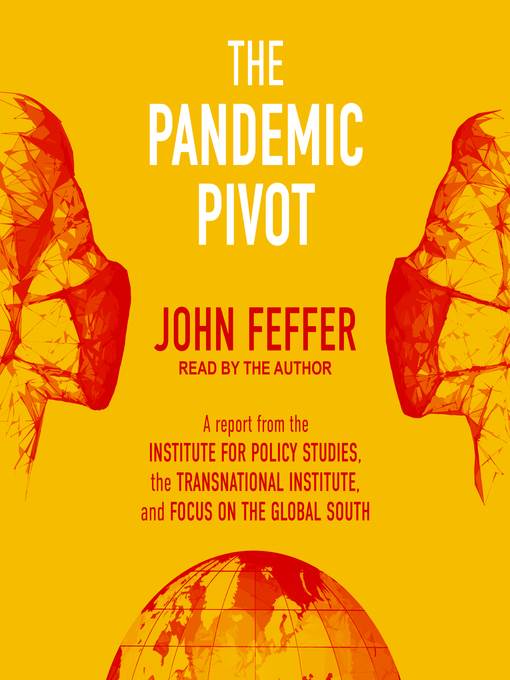
The Pandemic Pivot
A Report from the Institute for Policy Studies, the Transnational Institute, and Focus on the Global South
گزارشی از موسسه مطالعات سیاسی، موسسه فراملی، و تمرکز بر جهان جنوب
فرمت کتاب
audiobook
تاریخ انتشار
2021
نویسنده
John Fefferناشر
Tantor Media, Inc.شابک
9781666102444
کتاب های مرتبط
- اطلاعات
- نقد و بررسی
- دیدگاه کاربران
نقد و بررسی

November 23, 2020
Feffer (Aftershocks), a foreign policy analyst at the Institute for Policy Studies, gathers ideas from the institute’s summer 2020 symposium in this incisive and far-reaching treatise on the potential for post-pandemic global reform. Drawing from discussions held by think-tank founder Walden Bello, labor union director Cathy Feingold, Yale University history and law professor Samuel Moyn, and other progressives, Feffer contends that the Covid-19 pandemic, income inequality, and climate change are interconnected issues that must be addressed by a concerted global effort. A chapter on the prospects for a “Green recovery” from the pandemic notes that politicians in the E.U., South Korea, and the U.S. have proposed Green New Deals, and raises ideas for how best to manage the decline of the fossil fuel industry. Feffer also summarizes participants’ thoughts on issues the pandemic has brought into sharp relief, including income disparities along racial and ethnic lines and the potential consequences of a break in the international food supply chain. Though participants provide few specific, substantive plans of action, they point to organizations such as the UN and the World Social Forum as models for international cooperation and problem-solving. Progressives will gather valuable talking points from this shrewd assessment of the current state of global affairs.

























دیدگاه کاربران